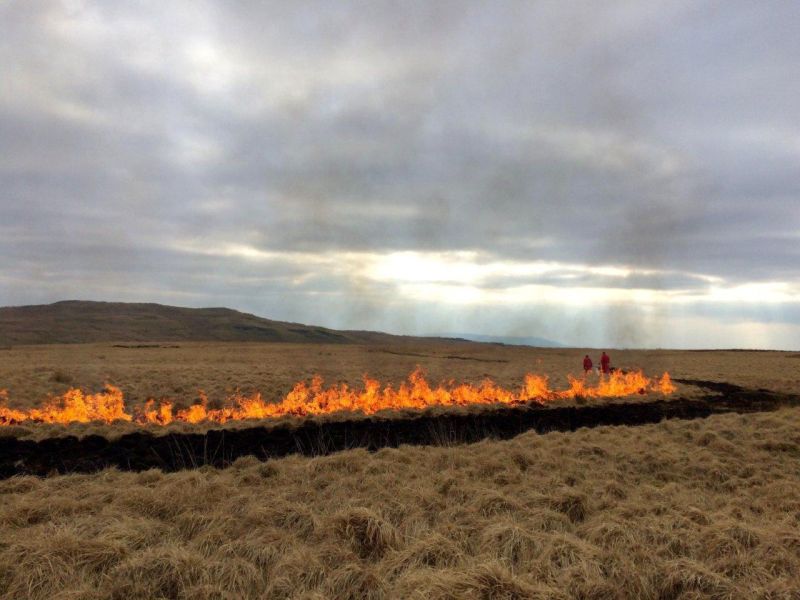
Welsh farmers may face fines of up to £1,000 if they don't comply with regulations on heather and grass burning, it's been warned.
Farmers are being reminded to follow the Heather and Grass Burning Code to avoid damage to the environment, hefty fines and cross compliance penalties.
The burning of heather, rough grass, bracken, gorse and bilberry is only allowed between 1 October to 31 March in upland areas in Wales and 1 November to 15 March elsewhere.
It is possible to carry out controlled burns at other times but only under a licence that may be obtained in very specific circumstances.
The Code asks farmers to prepare thoroughly before any burning is undertaken as well as plan and consult well in advance of the burning season.
Those planning a controlled burn need to contact the local Fire and Rescue Service, consult and co-operate with neighbours, especially woodland owners, to establish or confirm a burning programme for the year.
The success of a burn and to achieve the best results possible are dependent on good preparation and communication, the Farmers' Union of Wales (FUW) says.
“It is really important that farmers remember that if they don’t comply with the Burning Regulations, they are breaking the law and may face a fine up to £1,000,” FUW Vice President Ian Rickman said.
“They could also be looking at penalties under cross compliance rules.”
Farmers are asked to telephone the local fire and rescue service on the morning of the burning and provide details of the location and extent of intended burning.
Mr Rickman added: “At the end of the day let them know when all fires have been extinguished. Farmers are also advised not to burn if the weather is unsuitable for safe and controlled burning.
“You need to make sure you have an emergency plan and have back-up help available if you are carrying out a controlled burn and that you are contactable by radio or mobile phone on the day when burning is to be carried out.”
The Code further asks those carrying out the burn that they have additional fire suppression assistance available when burning vegetation where there is much purple moor-grass.
This is particularly important as burning scraps of straw and dead leaves from this deciduous grass can be lifted in the updraught from the fire and can start new fires.
The FUW explained that use of the Code, which is a 'powerful tool', must be used with skill and understanding.
“Carefully planned, periodic, controlled burning can be beneficial for agriculture, wildlife conservation and the wider environment,” Mr Rickman said.
“If it is carried out in the right way it can improve accessibility and better food value for grazing animals and produce a diversity of vegetation structure and composition suitable for a variety of wildlife and upland birds such as red grouse.
“ll-considered burning can be counter-productive and damage valuable grazing, plants, animals, habitats and historic features and negatively affect water quality.
“So please follow the code if you’re planning on carrying out a controlled burn for your safety, the environment and our wildlife,” he said.
